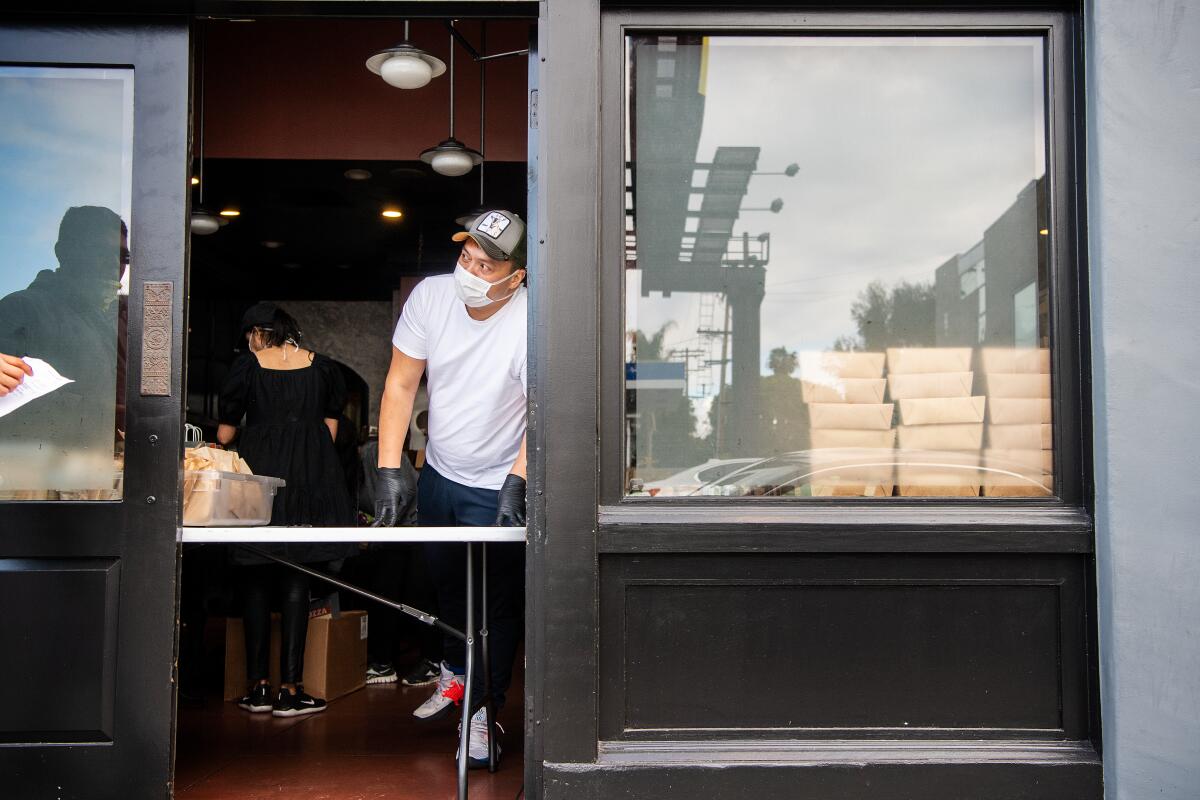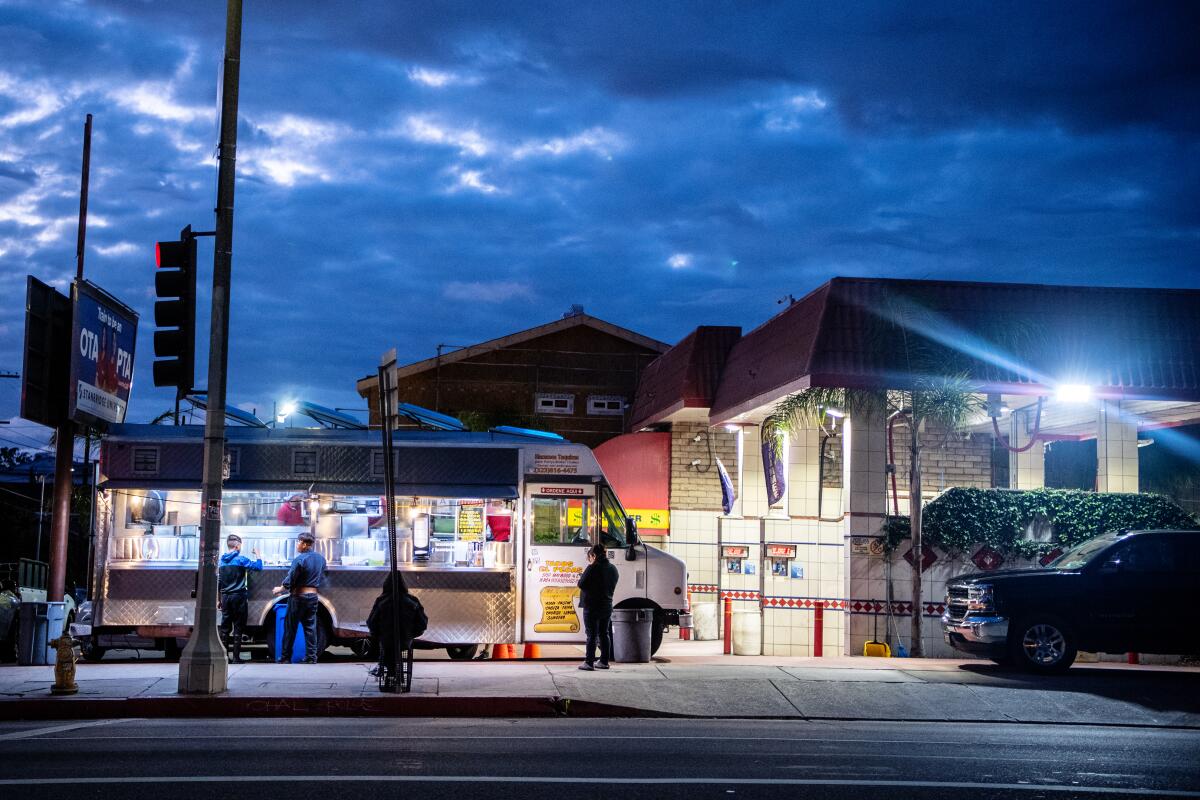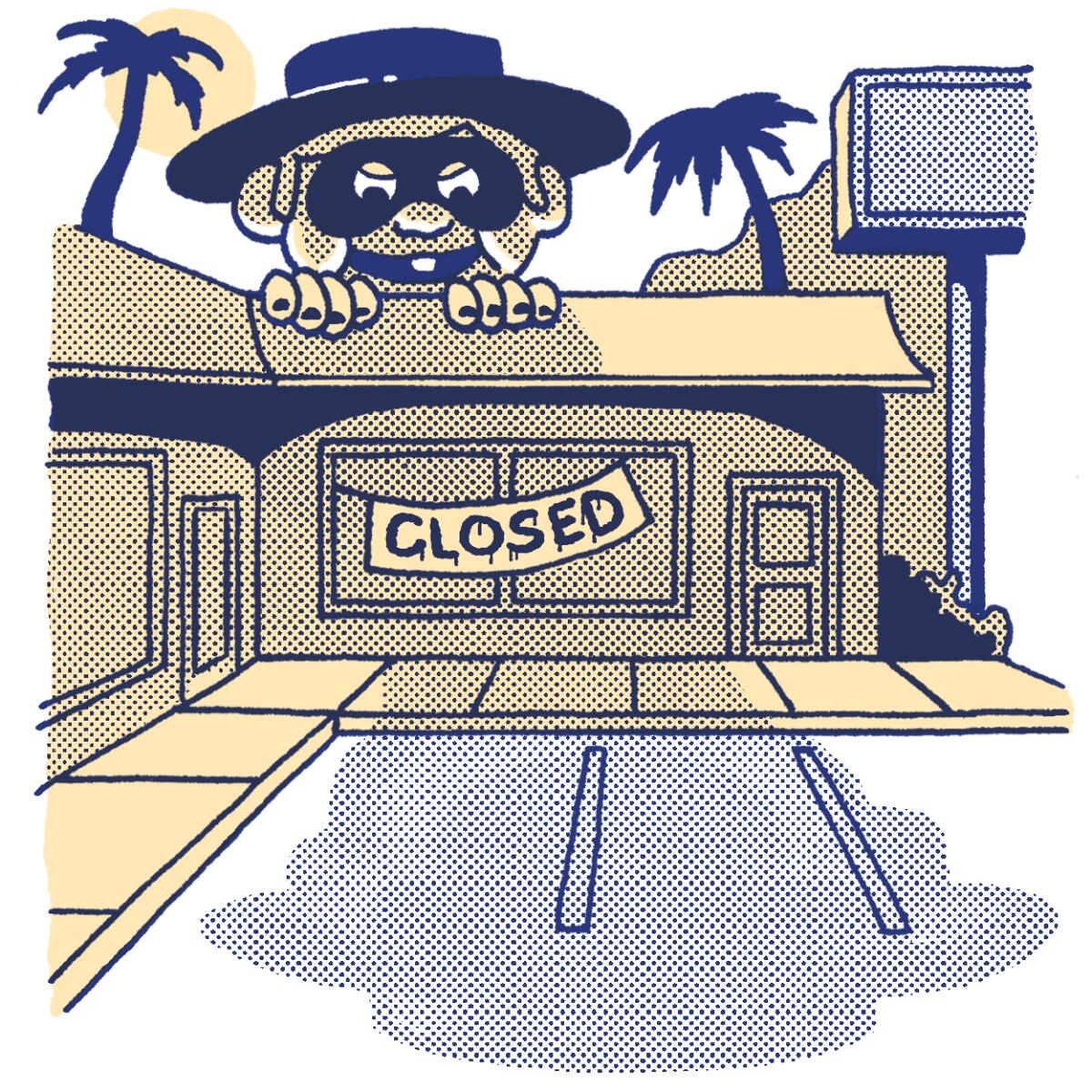5 things you can do to help L.A. restaurants

Today I received an automated email canceling a dinner reservation I made two weeks ago, before Los Angeles’ dining rooms went dark. The email felt like a postcard from a parallel dimension, one where dining rooms are open and the future of L.A. taco trucks isn’t fraught with uncertainty. So much has changed, and so quickly.
Nearly a third of the world’s population is now under coronavirus-related restrictions to help stem the pandemic, which has claimed more than 23,000 lives around the globe as I write this, according to the Johns Hopkins coronavirus resource center.
Our public spaces look like abandoned movie sets; Los Angeles’ famously jammed-up freeway system is unnaturally sleepy.

We are living through a public health crisis but also an economic one. Many small businesses are reeling from forced shutdowns. The hospitality industry, which employs more than 700,000 workers in Southern California, has been hit especially hard.
It’s unclear yet whether the biggest economic stimulus package in modern American history will help contain the financial fallout.
In the meantime, the hospitality industry is banding together. Several organizations have sprung into existence over the past two weeks, including the newly formed California Hospitality Coalition, an inchoate group of about 120 operators. The group is a clearinghouse of information for operators seeking answers and support during this unprecedented time.
“It’s a very grassroots effort that came together organically,” said Akira Akuto, the chef and co-owner of Echo Park’s Konbi. “Everybody’s in the same boat right now and this is a way for us to share information.”
Kristel Arabian of Kitchen Culture, a Los Angeles culinary recruiting firm, is also active in the newly formed organization. She says the group is helping operators “copy off each other’s homework” in a time of crisis.
“We hold group calls and compare notes. We ask each other what’s happening with insurance issues or legal questions,” she said.
Consumers alone cannot save restaurants; rebuilding a billion-dollar industry will require serious intervention at all government levels. But many people are wondering what they can do to feel less helpless.
Here’s what Akuto and Arabian said non-industry folks can do to support the Los Angeles restaurant community:
- If you have the means, consider buying a meal for somebody in need, Akuto said. Gift cards are a great way to support your favorite restaurants, but buying food right now helps keeps workers employed.
- Buy your groceries at restaurants. Some restaurants have turned their empty dining rooms into corner shops, selling pantry staples, dry goods and other food items. “Don’t go to Trader Joe’s and wait for three hours. These places are offering good deals. They’re not charging overhead. They’re just trying to stay open,” Arabian said.
- Follow the California Hospitality Coalition on Instagram to see “action items.” The group will be posting updates on legislative action happening on the state and federal level in the weeks to come.
- Follow and tag your favorite restaurants on Instagram. It’s a simple way to amplify the work of good restaurants, Arabian said. It’s also the easiest way to see what’s on offer at local restaurants. Konbi, for instance, is using the platform to promote a new fried chicken dinner menu.
- Stay engaged. “Make a list of your top 10 restaurants that you would hate to see close and support them at this time,” Arabian said. “Because 75 percent of them may eventually close.”
Your support helps us deliver the news that matters most.
Please consider becoming a Times subscriber.
Ask the Critics
I miss actually eating inside restaurants. When do you see them reopening?
— Kayla, Facebook
Nobody knows for sure when it’ll be safe again to gather in dining rooms. Many public health experts say we should prepare to practice social distancing for several months.
Here’s one thing we know for sure: It’s never been more important to shop local. Most chain restaurants will be here when the pandemic is finally suppressed, but your favorite indie cafe or bar may not.
I’ll repeat the advice echoed by many operators I’ve talked to this week: Order directly from restaurants. Some delivery apps charge restaurants up to 30 percent in commission fees per order. If you don’t know if your favorite restaurant is offering takeout or delivery, call them directly.
Have a question for the critics?
Our stories
— Many Los Angeles restaurants are open for takeout. Bill Addison shares seven favorites so far. Also from Bill: how the coronavirus shutdown has affected two L.A. bars.
— Vespertine for $49, Auburn for $39, n/naka for $38, Dialogue for $35. Deputy editor Andrea Chang reports on the elite L.A. restaurants pivoting to takeout.
— Lucas Kwan Peterson has a question: Are we prepared to let chain restaurants take over the dining landscape? It’s already happening, he writes.
— Jenn Harris writes about the L.A. restaurants offering free food to those in need.
— Californians are under state directive to stay home, which means many of us are spending more time in the kitchen. Genevieve Ko and Ben Mims’ new series, “How to Boil Water,” covers cooking basics such as making vinaigrette and roasting vegetables. With pantry staples still in short supply at some grocery stores, Ben offers baking projects that require no all-purpose flour or yeast.
— How are smaller restaurants coping with the COVID-19 pandemic? Garrett Snyder reports on a South Bay favorite: the Gardena Bowl Coffee Shop.
— Finally, a small, cheerful offering: an L.A. Times Food art project.




